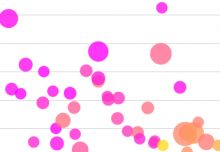 When opening a business magazine or reading a news article about business trends, one is becoming more and more likely to encounter the term “data science”. Tech-savvy companies across the board utilize big data and data science to market to and serve their customers more effectively. This manifests in uncannily comprehensive phone and web apps, targeted advertising, and more useful services. So what is data science? Data science is the practice of gathering large swaths of information, usually through a digital medium, and interpreting that data in a way that is useful.
When opening a business magazine or reading a news article about business trends, one is becoming more and more likely to encounter the term “data science”. Tech-savvy companies across the board utilize big data and data science to market to and serve their customers more effectively. This manifests in uncannily comprehensive phone and web apps, targeted advertising, and more useful services. So what is data science? Data science is the practice of gathering large swaths of information, usually through a digital medium, and interpreting that data in a way that is useful.
This can take the form of phone apps like Uber. Uber draws from a vast database of maps, GPS transmissions, traffic reporting software, etc. to estimate how long it will take your driver to get to you, how long it will take the both of you to get to your destination, and how much the trip will cost based on both travel time and driver availability (Source: http://smartdatacollective.com/andyambrosius/227786/data-science-what-companies-need-know). It allows the consumer to make an informed decision on the service they’re purchasing, which is part of why their service has been so successful.
Besides improving services, data science allows more pointed and effective advertising. Every single thing a person clicks on or conducts a web search for is archived in cookies (provided the user has cookies enabled). Data scientists tap into that information and create profiles on individual web users, which they compare with existing web users. They use those profiles to show users ads that are likely to pique their interest. Location, age, shopping habits, and general interests all help advertisers know what products to advertise to what consumers.
It’s the same algorithm that Amazon uses to suggest other products a consumer might be interested in buying. For example, if one buyer is browsing hiking boots, Amazon uses data science to suggest other hiking supplies like tents, climbing gear, sleeping bags, and the like.This mode of advertising is not only effective, but it follows consumer trends. People are becoming more responsive to products and less responsive to beguiling advertising. In the past, ads had to be flashy and convincing enough to appeal to everyone, because they were not able to hone in on their consumers. Marketers can now present products to an audience they already know will be fairly interested, and thus rely less on flash and guile and more on content, to which the modern consumer responds (Source: http://www.huffingtonpost.com/vala-afshar/why-a-data-scientist-shou_b_5640982.html).
As consumers become more active on the internet, more data about buying habits is available. Businesses who wish to be successful in the modern world would do well to utilize that wealth of information to provide better products to the consumers that truly want it.


